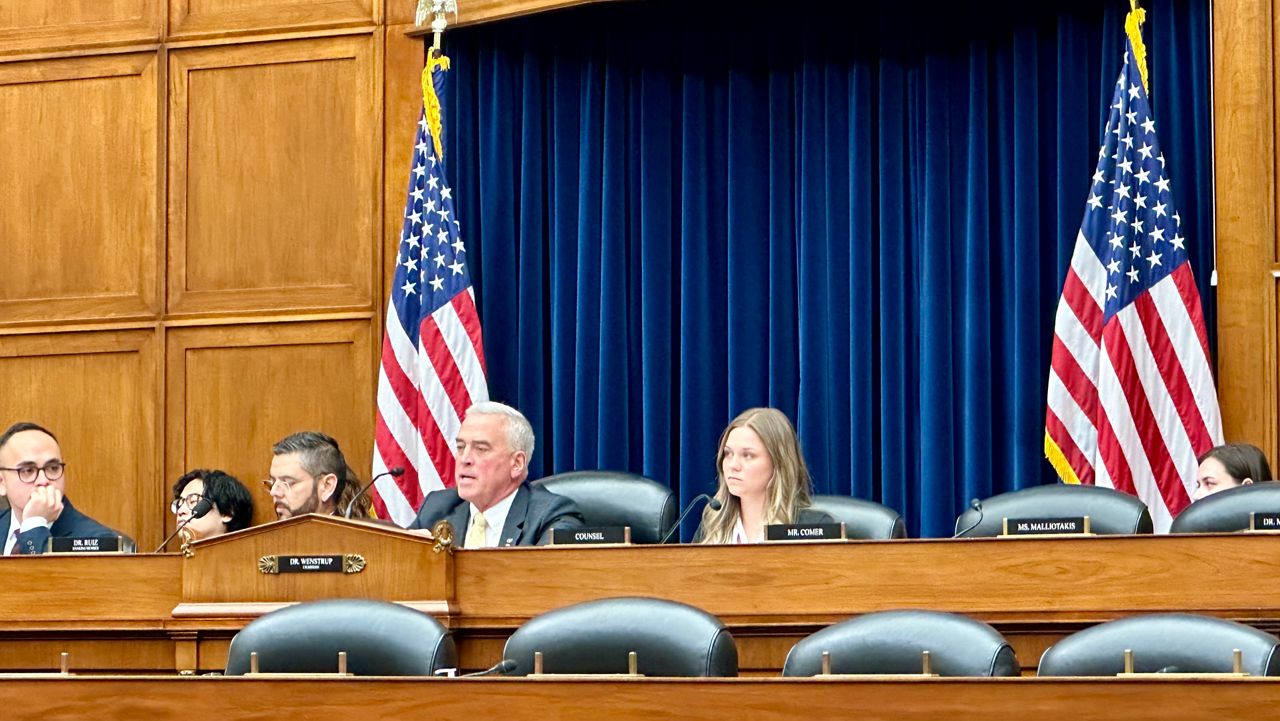WASHINGTON, D.C. — The House Coronavirus Pandemic Subcommittee held its final hearing Nov. 14, wrapping up a two-year long investigation of the government’s response to the COVID-19 pandemic.
What You Need To Know
- The subcommittee held its final hearing on Nov. 14 and is expected to release a final report by the end of the year
- Democrats had criticized the Republican-led committee for focusing too much on the origins of the virus
- Subcommittee Chair Brad Wenstrup is retiring from Congress at the end of the year
The investigation spanned 118 investigative letters, 38 transcribed interviews, 25 hearings and nearly 1 million pages of documents—all with a final goal of determining what government agencies can do better the next time a deadly virus arrives.
“We heard from people that recognize that we had many flaws through this process, and there are things that we can correct, but there are some things that we did right and we should build off of that,” said Rep. Brad Wenstrup, R-Ohio, who chairs the subcommittee.
In the hearing on Thursday, top public health officials said they had made improvements to streamline pandemic preparedness, but admitted there was more work to do. One problem that has grown since the pandemic, they said, is a rise in vaccine hesitancy.
“There are a number of different communities in our country, and we need to do better, I believe, in trying to reach those communities, to talk to them about what are some of the issues they have with vaccine,” said Lawrence Tabak, principal deputy director of the National Institutes of Health.
The Republican-led investigation faced criticism from Democrats for focusing on the origins of the virus and public health officials’ initial guidance, rather than best practices moving forward.
Wenstrup said it was necessary to investigate origins of the pandemic in order to prepare for the next one.
“Through this whole process, we found things we weren't expecting to see, so we had to spend a lot of time looking at things that didn't add up, that didn't look right,” he said. “That kind of took some of our time away from where we're going, as far as solutions.”
Wenstrup, who is also a podiatric doctor, has said he believes the virus likely came from a lab leak in China. He has also acknowledged the true source of the coronavirus may never be known for certain, but said the investigation revealed mistakes made in handling the pandemic.
Republican subcommittee members alleged that Dr. Anthony Fauci, the former NIH director and face of the government’s response to the pandemic, tried to cover up the origins of the virus. However, the investigation ultimately found no evidence linking him to wrongdoing.
Members also alleged former New York Gov. Andrew Cuomo helped to cover up New York’s COVID-19 nursing home scandal, and then lied about it when he testified to the committee in September. The committee last month referred Cuomo to the Justice Department for allegedly making false statements to the panel.
Cuomo said his testimony was truthful and denied any wrongdoing.
The subcommittee is expected to release its final report by the end of the year. It will then disband, while Wenstrup will retire from Congress.



